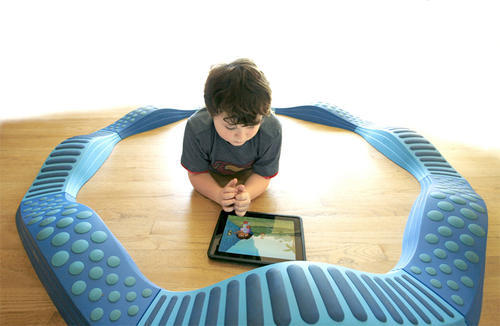Parents and teachers frequently observe that video games are the preferred type of play for children affected by autism. While there are legitimate concerns that some children on the autism spectrum can become overly involved in video game play, an increasing number of experts have begun to recognize that video games can be good for children with autism.
Over the past two years, a number of productivity and gaming applications (apps) have been developed to help children with autism improve social and communication skills. Of these, Autismate, Avaz, and Go-Go Games are a few of our favorites.
While there are still very few video games that are actually designed specifically for children on the autism spectrum, there are many games that require the practice of skills like self-awareness, flexibility, and self-control — key skills that are often areas of difficulty for children affected by autism. Some of our favorite games include If…, Minecraft, and Draw Something 2. Minecraft can be a particularly effective teaching tool because of the variety of activities and challenges it offers and the intense level of engagement that many children affected by autism display while playing the game.
[cjphs_content_placeholder id=”73545″ random=”no” ]I had the distinct pleasure of being part of a panel at the annual Games for Health Conference in Boston from June 18-20. Erinn Finke, Ph.D., and Ben Hickerson, Ph.D., both professors at Penn State University, will also be in attendance, and they will present some of their research on leisure activities and the usefulness of video games for children with autism. I had a chance to interview them briefly to describe some of their major findings and thoughts.
In a recently conducted study, Drs. Finke and Hickerson looked at the perceptions of parents with children across the autism spectrum about their children’s video game usage. Participating children with autism spectrum disorders (ASD) played around twelve hours of video games per week spread out over 6 days. The results of the completed study showed that 57.5% of participating parents played video games with their children with ASD, and that even parents who didn’t play along with them still had generally positive attitudes about their children with ASD playing video games. Furthermore, parents saw benefits to their children’s behavior, and “believed video games contributed to improved social skills, fine motor skills, language skills, reading and writing abilities, and critical thinking abilities in their children with ASD,” Drs. Finke and Hickerson report. “We believe this is a good indicator that parents of children with ASD would be supportive of the use of video games in educational and therapeutic contexts to help their children learn new skills.” Despite its small sample size, Drs. Finke and Hickerson believe the study “encourages us to continue to explore the potential of video game play for learning for children with ASD.”
To learn more about this study and other information about the power of games for good health, check out the Games for Health conference website.





I’m a 76 year old grandmother trying to figure this out. What do I put in the search colum? I have a 2 year old autistic child…how do I find apps for him on your Web site?
Hi Kat, I’m sending you an email!